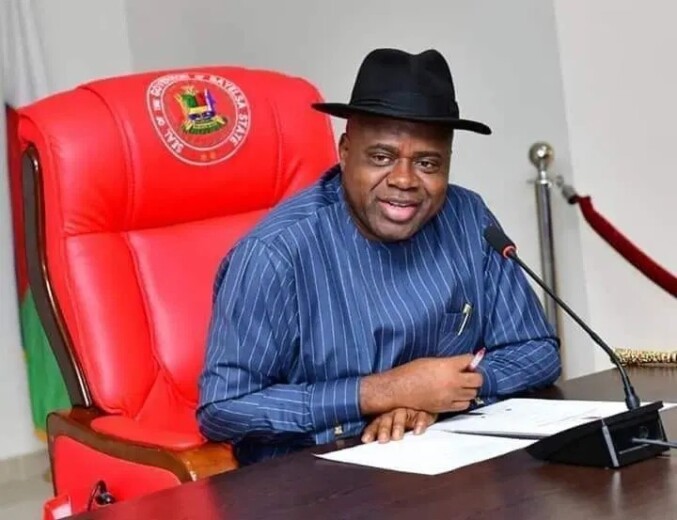Bayelsa State government has initiated plans to engage the French government and private sector to rehabilitate wasting state agricultural assets.
The state Commissioner for Agriculture and Natural Resources, Prof. Beke Sese, made this known while conducting a delegation of the French Embassy and some private sector professionals around some state agricultural assets in the state.
The delegation of the French Embassy led by the Regional Agricultural Counsellor, Dr. Sonia Darraq, was in Bayelsa State for a two-day visit for assessment of the Bayelsa Oil Palm Estate, Ebedebiri Starch Company Limited, the University of Africa Poultry Farm, the Aquaculture Village and a private farm, Zal Farms.
READ ALSO:
Singer Portable thrills participants at Abuja Int’l Carnival
De Renaissance Patriots hail FG over direct allocation of funds to LGAs
IBEDC records over 8,000 cases of energy theft in 10 months
Sese told journalists that the agricultural assets were not yielding the results intended including employment, food production and internal revenue generation, and it was time to make assessments, do analysis and see how the state can partner with the French Embassy and other private concerns to revive them.
He said: “Yes, some of them are already being run by some organisations, but we must face the facts. The fact that some are struggling and probably lack the capacity to put these assets where they ought to be and there are no sentiments here. We just have to be realistic and whatever we are doing, whatever we are saying is all in line with the governor’s mandate.”
On the Ebedebiri Starch Company, he said: “It’s one of the projects that was concessioned. It’s a private company, the Ebedebiri Starch factory that is handling the project and you can see the project is functional. You all saw the process of the cassava, the entire chain, the end product. It’s evident that they’re struggling with the amount of cassava that is required in that project is enormous and part of the reason why the state has not yet started benefiting from that project is in terms of revenue.”
According to him, there should be a balance between starch and garri production so the people would have enough to eat saying, “So we will find a balance, it’s not something that is a snap of the finger.”
He had earlier presented a copy of the Bayelsa Agricultural Prosperity Plan to Dr. Darraq who is also in charge of Benin, Togo, Ghana, Niger and Cameroon; the document details the state government response to addressing the issues of agricultural development in the state.
He said in a bid to mitigate the destructive effects of perennial flooding on farming activities, Bayelsa State has disclosed plans to deploy technology for increased food production since the state does not have contiguous land due to its marshy environment.
Sese said the state has rich soil for the cultivation of rice, plantain and cassava, but the annual flooding has posed a serious challenge to farming over time hence the need to resort to greenhouse farming.
He explained that the new approach to agricultural revolution is anchored on four pillars namely input, production, processing and marketing noting that the narrative is changing as a result of Governor Douye Diri’s ASSURED agenda which has agriculture as number one on the agenda.
Sese said: “When compared to other parts of the country, we have a lot to catch up. We do not have large areas of land for contiguous farming.
“We are thinking of deploying technology such as greenhouse farming across the state. We want to ensure that all the local government areas benefit from this visit.”
Earlier, the Regional Agricultural Counsellor in the French Embassy, Dr Sonia Darraq, who is on a two-day visit to Bayelsa State said there are lots of areas of collaboration with Bayelsa State on agribusiness development.
Darraq said: “We have a lot to do together. We don’t know anything. We want to learn from you. We have to see how we can work together.”
On the Bayelsa Oil Palm Estate,
Darraq also felt sorry because of what has happened to the farm, but assured that if all worked together the farm would be rehabilitated and modernised.
“When we entered this plantation the first feeling is that we are a little bit sorry because of what has happened here. And, actually, I came here together with some professionals, I will say, private sector professionals in the area of oil palm in order to figure out together with the French Government the private sector with Nigerian companies and French ones to contribute to the rehabilitation and modernisation of this place.”
Owner of Radial Farms in Edo State, Mr Nwadiale Angonyeme, said the condition of the farm also offered an opportunity because when fully operational, it could employ over 2,000 workers if “we work collectively with the French Government and Bayelsa State to bring all of this together.”

